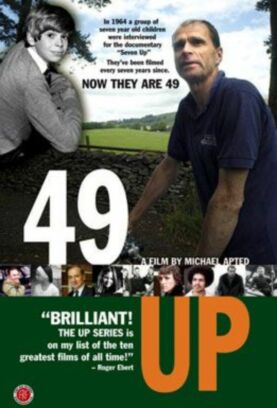Man from Elysian Fields, The
If you can get over an understandable revulsion at the preposterousness of the premiss of The Man from Elysian Fields, you’ll probably find that there are plenty of other things to put you off it. Yet however much you may enjoy the hilarious spectacle of Mick Jagger as an ageing gigolo calling himself Luther Fox but regretting that love has passed him by in an accent as plummy as that of Edward Fox, it is still the central inspiration of the scenarists — writer Philip Jayson Lasker and director George Hickenlooper — that takes the cake. It has to do with an unsuccessful and desperate novelist called Byron Tiller (Andy Garcia) who secretly takes a job with an escort service belonging to the vulpine Mr Fox in order to support his wife (Julianna Margulies) and child.
Seem unlikely? Just you wait. Byron’s first client, Andrea Allcott (Olivia Williams), turns out to be the beautiful young wife of a Hemingwayesque and Pulitzer prize-winning novelist (James Coburn) now grown old and impotent, both sexually and literarily. The old man not only gives his blessing to his wife’s liaison with the younger, more vigorous and (it is hinted) more talented writer but also calls on Byron for a critique of his most recent novel, over which he has been toiling for a dozen years. When Byron gently points out to him that the thing is not up to the standard of his Pulitzer-winning days, the old man begs him to help him re-write it, incorporating into it a central idea from his own most recent work and offering him co-authorship.
Sure he does. Whereas you or I might be driven by failure, poverty and a sense of responsibility to our families to get a job working in an office, or perhaps driving a cab or delivering parcels for UPS, Byron has the movie star’s luck of being instantly presented with an operatic — or at least soap-operatic — moral dilemma. Gosh, should he sell out his literary ambitions by trading on his charm, good looks and prowess in the sack? Or, having sold out, should he then consent to put his great but unrecognized talents as a novelist at the service of an old man who has outlived his own reputation, passing along to him in the process his own more developed social conscience? Tough decisions, I think you’ll agree.
Obviously, it isn’t easy being Byron. “God, you’re good!” his wife, Dena, exclaims in response to some mysterious ministrations under the covers which accompany her recitation from memory of the laudatory bits of the Los Angeles Times’s review of his first novel, Hitler’s Child. Yes, the movie concurs. He is good. One of Luther’s languid (and hilarious) voiceovers actually intervenes to wonder aloud whether the adoring Dena was addressing God or her god-like husband. “Unconditional love can be a pain in the ass,” Byron observes of poor Dena. All the more so, he might have added, when it is love of self.
But if there is just the hint of wish-fulfillment in the mise en scPne, the self-consciously writerly feel to the script sorts oddly with the naVveté of the assumption of a direct connection between fiction and real life which disfigures the already pretty silly climax. Here, the spectacle of Mr Garcia biting his lip and emoting his way through a public reading of an autobiographical novel about marital breakup is frankly ludicrous. Also to enhance the effect of high literary culture and sophistication, carefully crafted bon mots have been dropped into the script like raisins into cookie batter.
Most of these, rather feeble as witticisms, have been given to Mr Jagger, who has obviously rehearsed them like a pro. This is a guy whom you can’t take your eyes off, even when he is saying things like, “If you don’t use success to enrich your life, then you’re just putting failure into Gucci shoes.” This he intones to the great and good Anjelica Huston, wasted in the minor role of the one client he still services “personally,” and we can’t help sympathizing when she replies, “I don’t know what you mean.” Yet however poor the writing the aplomb with which Mr Jagger pronounces his lines adds to the thrill produced by that amazingly lived-in face and musical voice. When for example, he tells Byron that his date for the evening is to be the wife of Tobias Allcott, Byron tells him that he took “a whole course” in that writer’s work in college.
“How did you do?” asks Luther.
“B-plus,” says Byron.
“Maybe you should,” Luther replies with just a beat of hesitation as he drags on his cigarette — “bone up.”
This moment comes quite early on in the picture and is, though not perhaps a thigh-slapper, in most ways its highlight. Yet we cannot quite dismiss it without noticing the extent to which the movie represents a remarkable throwback to the kind of bourgeois moralism that was already beginning to look old hat in the Hollywood of the 1930s. This much about it is really quite endearing. It may even herald the turn of the licentious tide that has been running at full flood since the 1960s. There is something almost awe-inspiring about hearing Mick Jagger’s voiceover observation that where he has “spent years trying to pleasure women” he has begun to understand, with Byron, that “what’s important is learning how to please only one.” We almost forget to laugh.
Discover more from James Bowman
Subscribe to get the latest posts to your email.








